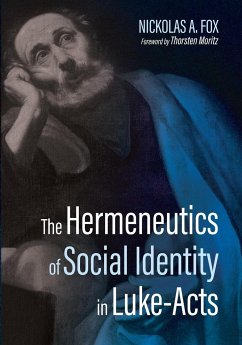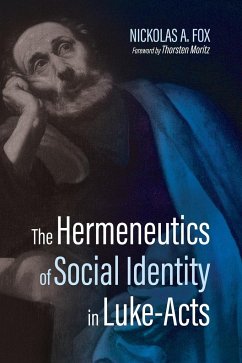Adult males did not simply stand up and speak. They needed authorization to exercise public voice. Why should anyone listen to them? In his first four chapters, Luke achieves this for Jesus, a process we access in two ways. In part 1, we examine how Luke establishes this by employing social-science models, which inform our understanding beyond what typical commentaries can achieve. We begin this by considering Luke 1-4 in terms of the social-science communications model, which exposes how God, as Sender-of-Senders, repeatedly sends Messages about Jesus, which cumulatively establish him with a public role and status, and so with public voice. Jesus' ethos can be described by considering him in terms of typical group-oriented personality and by means of rituals of status elevation and confirmation, which dramatize his worthiness to have public voice. Part 2 consists of rhetorical materials that inform us on how typical beginnings began. Ancient rhetoric also taught formal ways to construct a proper ethos, both for authors and those about whom they spoke. Finally, Luke himself needs a proper ethos to warrant our acceptance of him as a reliable narrator, which he achieves in his prologue. Jesus deserves public voice.
Hinweis: Dieser Artikel kann nur an eine deutsche Lieferadresse ausgeliefert werden.
Hinweis: Dieser Artikel kann nur an eine deutsche Lieferadresse ausgeliefert werden.








